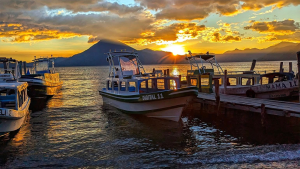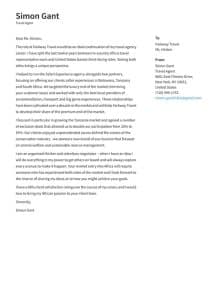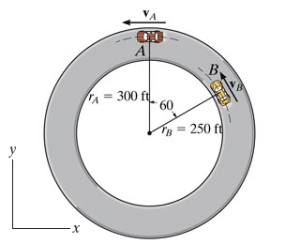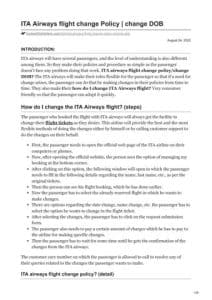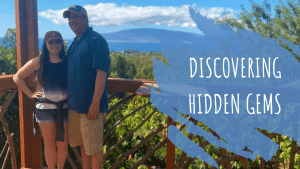Welcome to Hosteliest, your go-to resource for all things travel and hotels. Today’s discussion leans on the adage, “A traveler without observation is a bird without wings.” Exploring the symbiosis between observing and traveling. Enjoy!
Post Title: A Traveler Without Observation is a Bird Without Wings: Unveiling the Power of Observation in Traveling
Can you imagine a bird flying high in the sky with its wings clipped? It’s hard, isn’t it? Now, draw a similar parallel for a traveler journeying without observation – it’s equivalent to a bird without wings. The very essence of travel lies within observation; it enriches our minds and imprints unforgettable experiences upon our hearts. In this article, we will embark on a journey to understand why a traveler without observation is a bird without wings.
Table of Contents
ToggleThe Power of Observation in Travel
Simply put, observation implies conscious attention or notice. As a traveler, it means immersing yourself into the environment, absorbing every detail, appreciating the diversity, and gaining insights into different cultures, traditions, and landscapes. A traveler without observation is denied these enriching experiences, thus making their journey quite akin to a bird attempting flight without wings.
Consider the thriving cityscape of New York or the serene backwaters of Kerala. Simply traversing these places without immersing your senses would rob you of their true essence.
Observation: The Bridge Between Traveler and Destination
Observation forms an invisible yet concrete bridge between the traveler and their destination. It helps forge an emotional connection that elevates travel from a mere physical movement to a transformative experience. Remember, a traveler without observation is a bird without wings.
On one hand, a bird uses its wings to explore, adapt, and establish connections with its environments. Similarly, a traveler, armed with observation, can delve deeper into localities, immerse themselves in diverse cultures, and learn the unsaid histories that lurk behind century-old landmarks.
How to Enhance Observation While Traveling
To ensure your travel isn’t equated with a bird without wings, here are some tips to maximize your observation prowess:
Slow Down: It is tempting to hurry from one tourist attraction to the next, but this rush leaves little room for observation. Slow down and soak in every aspect of the surroundings.
Interact with Locals: Local inhabitants are treasure troves of information — speaking with them offers insights you won’t find in guidebooks;
Be Curious: Ask questions, explore beyond the tourist trail, and be open to discovering something new.
Conclusion: Unleash the Bird Within
Remember, travel isn’t merely about the distance crossed or the destinations marked off your bucket list. It’s about the experiences collected over time—flavors tasted, stories heard, cultures observed, and bonds formed. These create unforgettable memories, offering you a genuine understanding of the world.
Embrace observation as your wings when embarking on a journey. You will become more than just a traveler; you will become a part of the ever-evolving global narrative, contributing your unique understanding and experiences. Do not be a traveler without observation—it’s like a bird without wings. Instead, spread your ‘wings’ of observation wide enough to truly soar in the vast ‘sky’ of traveling journeys.
Turn your wanderlust into a transformative journey filled with mesmerizing tales of exploration and discovery. After all, a traveler without observation is a bird without wings, and who would want to flutter when you can fly?
Maximizing Your Travel Experience: The Importance of Observation for the Modern Wanderer
The art of observation is a key skill every modern wanderer should hone to maximize their travel experience. It’s not just about seeing attractions, hopping from one hotel to another, or ticking off famous places. Rather, it’s the subtle art of noticing details that make each place unique, capturing experiences that go beyond traditional landmarks and hotels.
When you step into a city, town, or village, the ability to observe enables you to absorb the essence of the place. This means appreciating not only the grandeur of its buildings and squares but also the smaller aspects – like how sunlight falls on a centuries-old cobblestone road, the distinct aroma wafting from a local bakery, or the rhythm of local life in the bustling markets.
Observation enriches your hotel experience as well. Each establishment has its unique aesthetic, service, and ambiance that appeals to different senses. Whether it’s the architectural design, the blend of colours, the geometric patterns on the carpet, or the quality of customer service, these elements collectively form part of the hotel’s identity. Understanding this can transform an ordinary stay into a memorable experience.
Engaging with locals is another area where observation comes into play. Watching their daily routines, their interactions, and even their non-verbal cues can teach you so much about their culture. It’s about respecting their customs and traditions and gaining a deeper understanding of their way of life.
Undoubtedly, engaging all your senses to observe your surroundings enhances your travel experiences. It encourages immersive travel, which goes beyond surface-level tourism. It promotes a more conscious and meaningful way of experiencing new places, transforming you from a mere tourist to a modern wanderer.
Understanding the Importance of Observation in Travel
Observation refers to more than just seeing; it’s about immersing oneself in the environment and really appreciating its nuances. For the traveler, the ability to observe is as precious as a bird’s wings which give it the freedom to explore. Without observation, a traveler may cover many countries and cities but will miss out on the true essence of those places. Travel is more about the experiences, the culture, the people, and the local ethos rather than just ticking off tourist spots.
Different Ways of Observing While Traveling
Observing while traveling is not limited to visual intake; it encompasses all five senses. When you arrive at a new place, take a moment to truly absorb your surroundings. Listen to the local sounds, taste the local cuisine, touch the local artifacts and smell the local flowers or food. The essence of travel lies in these immersive experiences. Try to interact with locals as much as possible, learn their way of life, their traditions, and their stories. Reading about a place or seeing pictures can never replicate the experience of being there and observing it ourselves.
Enhancing the Quality of Your Travels Through Observation
One of the most practical benefits of observation is that it helps you learn from others and adapt to new environments. By observing how locals navigate their city, you can pick up practical tips like how to cross a road safely, where to find the best food, or how to negotiate taxi fares. Note down your observations in a travel journal, this can be a great way for you to remember details about your trip and reflect on what you’ve learned about the world. Remember, the key to make your travel meaningful and memorable is observation.
Frequently Asked Questions (FAQ)
“What key observations should a traveler make to enhance their overall travel and hotel experience?”
There are several key observations a traveler should make to enhance their overall travel and hotel experience.
First and foremost, research about the destination is crucial. This should include understanding local culture, customs, safety precautions, and weather conditions. It’s important to respect local norms and adjust your behavior accordingly to ensure a frictionless travel experience.
Secondly, check out hotel reviews prior to booking. Genuine guest reviews on various travel portals can provide valuable insights about the hotel facilities, services and location. Remember that a higher price doesn’t necessarily guarantee a better experience.
Ensuring you have a comprehensive travel insurance policy is another important aspect to consider. This will cover unforeseen circumstances like medical emergencies, trip cancellation or lost luggage.
Planning your itinerary in advance is beneficial. Not only it ensures you have a well-rounded experience, but also helps in time management. However, also try to leave some room for spontaneous adventures.
Paying attention to packing is a small yet significant aspect of travelling. Efficient packing can save time, money and stress during the journey. For instance, packing essentials like medication, universal adapter, snacks etc. can come handy in various scenarios.
Lastly, be aware of the potential for cultural shock. Understanding and respecting cultural differences will greatly enrich your travel experience and help you connect with locals.
In conclusion, smart planning, cultural understanding and flexibility can significantly enhance your overall travel and hotel experience.
“How can one’s traveling experience be likened to a bird without wings when not observing their surroundings effectively?”
Traveling is like a grand symphony, with each destination being a unique note that adds to the beautiful orchestration. However, the true essence of travel can be lost if you do not fully immerse yourself in the local culture and environment. Just as a bird without wings cannot soar in the sky, a traveler who does not explore their surroundings effectively is unable to experience the full breadth and depth of their journey.
Each location comes with its unique history, culture, traditions, food, architecture, and natural landscapes. All of these elements work together to create the wonderful mosaic that makes that place special. Hotels and accommodations are crucial as well, serving as your home away from home. They should enhance your travel experience by providing comfort, convenience, and even luxury, depending on your preferences.
On this note, it becomes clear that to observe one’s surroundings effectively means immersing oneself totally in the local ambiance. This includes trying out local cuisines, participating in traditional activities, learning some phrases in the local language, taking part in guided tours, or even just sitting quietly in a park or a cafe and watching the world go by.
In conclusion, travel is more than just sightseeing; it’s about living and experiencing another culture, another way of life. So the next time you travel, remember to spread your wings wide and take in everything your destination has to offer. Only then can you truly savor the joy of travel and create memories that will last a lifetime.
“Why is observation an essential part of a traveler’s experience in relation to hotel choice and destination exploration?”
Observation plays a crucial role in shaping a traveler’s experience. From the choice of a hotel to exploring a new destination, being observant can greatly enhance the travel experience, providing valuable insights and memories.
In terms of hotel choice, observation starts right from researching online about the place of stay. By paying close attention to reviews, pictures, and services offered by the hotels, travelers can make more informed decisions. Once at the hotel, observing the cleanliness, staff behavior, available amenities, and overall atmosphere contributes to the overall experience.
When it comes to destination exploration, observation becomes even more vital. Observing the local culture, environment, landmarks, and people provides a rich understanding of the place. It allows travelers to immerse in different experiences, respecting customs, and appreciating the uniqueness of the destination.
Moreover, being observant can also ensure safety. Noticing details about surroundings, unusual activity, or potential hazards can help avoid unpleasant experiences.
Therefore, observation is indeed an essential part of a traveler’s experience. It guides choices, enriches experience, ensures safety, and leaves travelers with a better appreciation and understanding of the world. The more a traveler observes, the more enhanced their travel experience becomes.
In conclusion, observation is the essence of a fulfilling travel experience. One might lodge in the most luxurious hotels or visit exotic destinations, but without keen observation, these experiences amount to nothing. A true traveler treasures the beauty found in minute details, the stories heard from locals, the flavors of new cuisines, and the feeling of different atmospheres. The heart of traveling lies in immersive exploration—it’s like entering an uncharted territory with an open mind and returning home with a piece of that world etched in your soul.
So remember, the next time you pack your bags for a new adventure, don’t forget to bring along your sense of observation. Explore not just the roads less traveled, but also dig deeper into the bustling streets. Unravel what hides beneath the surface. Just as we expect a bird to take flight, we count on the traveler to observe and enrich their life experiences. Therefore, a traveler without observation is akin to a bird without wings – capable of moving but not truly experiencing the journey.
This is the spirit of true traveling, which is not about ticking off destinations on a bucket list but about immersing oneself in diverse cultures and soaking in experiences that transform us. It’s about leaving the comfort of the familiar hotel room to wander into the unknown. After all, travel is more than a journey; it’s a continuous process of learning, growing, and, above all, observing.

